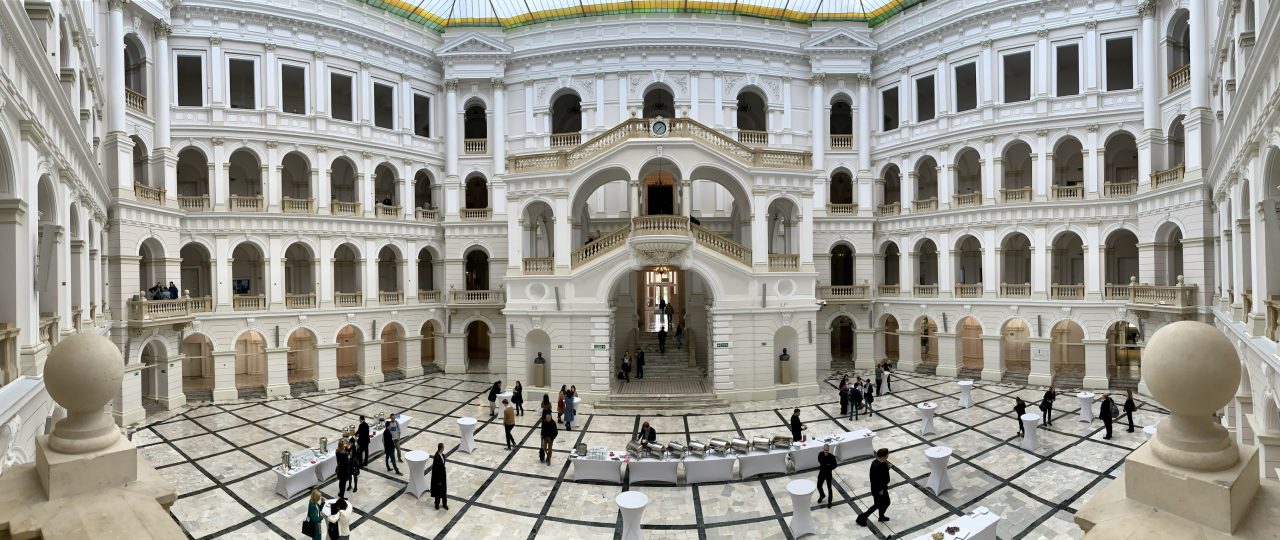A growing number of students studying each year decided to focus abroad in Poland. These students are attracted to its foundations of higher education, lower tuition costs, and similar life-long efforts. Persevere in finding out why you should consider focusing overseas in Poland.
Located in an area centered on the plains of Northern Europe, Poland is fulfilling as a global and social juncture of Eastern and Western Europe. Poland has been a survivor country since the founding of the Polish Empire more than 1,000 years ago. Today, Poland is the largest country in the former Eastern European countries and the youngest dweller from the European Union.
Education System in Poland
The Polish school framework reflects far back in the Middle Ages. Jagiellon University, for example, was founded in the fourteenth century, and today is probably the most knowledgeable college in Europe. There are more than 400 courses offered in English in Poland, a significant number of them at the lowest level. Poland has a number of colleges under consideration, including Jagiellonian University and Warsaw University. Warsaw University is ranked Top Coder global IT positioning, beating American colleges considered to be the Massachusetts Institute of Technology (MIT). The number of tertiary institutions in Poland has quadrupled in recent years, and the number of undergraduate students has increased fivefold. International courses that decide to focus on Poland will have the opportunity to receive a quality education in a fast-paced climate.
Polish medical schools, in particular, draw a growing number of students worldwide. Many students around the world who have not been able to enter the clinic program in their home country are instead choosing treatment in Poland. Although these courses are taught in English, Polish-speaking skills will likely be required before the end of the program, when students begin counseling with patients. All driving colleges in Poland offer excellent English-taught projects, including medicine, design, personality, business, and account.
Tuition and Cost of Living
Like many other EU nations, Poland offers savings and some of the times the cost of free education for EU students. For example, English language courses offered at the University of Warsaw cost about $ 1,300 and £ 2,500 each year. Most obviously in Poland, it actually costs not in the UK, with a significant release of medical studies, with cases worth about £ 10,000 each year.
The ease of living in Poland makes the country unique compared to other complaints of examining students around the world who live on a carefully applied system. In addition, the average cost of basic necessities in Poland is much lower than in Western or Northern Europe, which means that all high-cost costs are much lower in Poland than elsewhere in Europe. For example:
- Transportation for illiterate students monthly: £ 9
- Pint of nearby lager: £ 1.20
- One kilogram of cheddar: £ 4
- Bread: £ 0.50
- Take the kebab: £ 1.50
- Meals at a savings restaurant: £ 3.80
Accommodation
Most Polish colleges offer some form of academic convenience. Be that as it may, for the sake of convenience – which can be as little as $ 80 per month in a standard room – interest in such practicality is high. Should you ever wish to seek college accommodation, you should contact your college upon receipt of your letter of acceptance. Many Polish students decide to stay in condoms or shared rooms, costs ranging from £ 100- £ 200 each month, depending on the location.
Working in Poland
International students who are citizens of EU / EEA countries are eligible to work in Poland without a work permit. However, finding a certain type of work in Poland without Polish language skills can be a challenge. It doesn’t matter if you get a job, the compensation is low and you have less work to do than a large compensation of £ 2 per hour. As a result, many international students decided to return to their home country during their summer vacation to work.
Best Insurance Plans for Poland
We have a number of protection programs, however, for students not focused on Poland some of the best protection methods are:
Tuition fees in Poland
At public universities, Polish and EU / EEA and Swiss students do not pay tuition fees for Polish courses. All other learning programs need to be taught to students. In general, costs vary from:
- 500 – 6,000 EUR / year of Bachelor’s degrees
- 1,000 – 8,000 EUR / year of study for Master’s degrees
Some degrees in Dentistry and Business (especially MBAs) can cost more than 15,000 EUR / year. You will also pay more if you enroll in private universities. Although few, you can find free programs in Poland. They are very common at the Master’s level and some of them are free to all foreign students, some are only free for EU / EEA citizens. As always, our advice is to look at whether tuition fees apply to students from your country to avoid any unpleasant surprises.
Universities in Poland with affordable tuition fees
- Warsaw University of Technology
- Poznan University of Life Sciences
- University of Agriculture in Krakow
- University of Opole
Student living costs in Poland
Poland is the ideal European country with a good and stable economy. The cost of living for students worldwide varies between 350 – 550 EUR / month. You can change your spending plan depending on the city or area you want to focus on. Large urban communities, for example, Krakow or Warsaw require between 500 – 850 EUR / month.
Accommodation costs in Poland
Staying is important because it takes into account about 35% of your total monthly living expenses. International students can find access to local college colleges or private recruitment methods, which can be shared equally.
Rent at a standard rate: 80 – 150 EUR / month. One of the most popular methods among Polish students.
Costs are high in case you need to rent a condo without someone else, especially in a big city. One living room in Krakow costs about 300 – 465 EUR / month, while Warsaw costs 350 – 650 EUR / month.
Other costs associated with accommodation
When you live in Poland, without the same rental you will have additional costs from utilities. Essentials are energy, heat, water, and garbage and have a total cost of 155 EUR / month condo 85 square meters. Additional costs can also be considered as a two-month store a large number of landlords ask you when you enter your rental property.
Food costs
Maintenance of international study as a rule costs 100 – 150 EUR / month. You can set aside some money if you decide to buy feed and buy it at less expensive stores. Perhaps the best known are Tesco, Auchan, Carrefour, Leclerc, and Lidl.
You can enjoy dinner at a decent restaurant for 5 EUR or pay 23 EUR for a full dinner at a regular two-night restaurant. A small drink will cost you just 2 EUR.
Travel expenses
Public transport is preferred by junior students, who pay 50 EUR per semester, which is accessible for half a year. Most of Poland’s suburbs are fun for all frames and courses, so you too can walk. If you appreciate transport by car, like 18% of Polish students, you will pay about 1 EUR / liter of gas.
Extra study materials
During your research program, you should purchase books, research magazines, and other research materials. These, in most cases, are valuable and can be purchased even at certain colleges. In any case, you are encouraged to find them at bookstores with old or used items, to set aside some money. You can also use the Numbeo site to check the various costs and expenses in Poland.
Find Master’s degrees in Poland
Student support
In Poland, you can support yourself by making money through grants and financial programs. Here are some of the options you can explore:
- Scholarships offered by the Polish National Agency for Academic Exchange (NAWA)
- Erasmus + applications
- Scholarships at Scholarshipportal.com
- You can also look for a Studyportals Scholarship to get help to fund your exams in Poland.
Knowing all of these things about daily expenses in Poland, feel free to design your own financial plan so that you have an extraordinary understanding of the report in this beautiful country.
Student Visas for Poland
In the event that you need a non-school visa or not, rely on the country in which you are applying. The general policy states that you need a visa to enter Poland. The good news is that various nations have been liberated from this need. You can check if your country is on track.
Poland is a suburb of Schengen, so you can apply for a Polish visa and travel to Europe (excluding the United Kingdom, Ireland, Cyprus, Bulgaria, Romania, Croatia, and areas outside the EU). The need for meditation, however, is another matter. Work hard to see if you need to apply for a lower education visa and how to complete your communication without problems.
EU/EEA Students
For the most part, students from EU / EEA countries are not required to apply for a study visa but are required to register their visit to Poland. You need to do this if you are planning to stay longer than a quarter of a year. This is important in case you wish to continue to focus on Poland so try to make sure you do!
To apply for your visit to Poland you need to do so at the Office of the Voivodship (Provincial). There are sixteen workshops, and they are located in the urban areas of Poland. In line with these lines, one for each administrative region in Poland.
When you appear in Poland, you apply at the Voivodship Office in the city in your region within 90 days of your appearance. Co-operation at no cost and you will receive a registration agreement stating your right to stay in Poland. (For example, in the event that you focus on Krakow – within 90 days of your appearance you must apply to the Lower Poland Voivodship Office in Krakow).
NON-EU Students
Non-EU students need to apply for a student visa to stay in Poland. The cycle is straight forward. Follow these simple steps to apply for a visa:
-
- Find a Polish door that can rotate your app. You can use the MFA web directory.
- Carefully read ALL the details regarding visa submission to the official site and follow all guidelines.
- Hold a visa meeting with the department. As a rule, you must register on their site.
- Prepare important repositories, including application form, visa record, biometric image, health care, sufficient self-help report, reports that confirm the motive of your visit – in your case the reason for your presence should be considered.
- The details of the required documentation can change between departments, so confirm with the office site.
- Submit all repositories including printed and marked application framework and visa costs. Your visa application is complete. It will take as long as 15 days to be investigated.
If you are from Poland, it is important to apply for a Temporary Residence Card. Also, time is of the essence! So be sure to apply for a temporary residence permit 45 days before the end of your visa. When you receive a grant you will be issued with a Temporary Residence Card, an ID form that shows that you have a home-based grant. You can use this, along with your motion report to cross the Polish line however many times if you wish. It is very helpful if you wish to investigate the United Nations or visit the family recklessly!
The main grant is for a period of 15 months. It can be restarted at intervals of 3 years but not during your trial. Remember: You must apply for a Temporary Residence Card after leaving Poland, but before your visa expires!
Application
You need to apply for a temporary residence permit with your nearest Voivodship Office in your
area of residence and focus.
Records that you must officially approve your visit
- Application structure Pictures and records showing your personality and nationality
- Address
- Purpose of stay (announcement from your school)
- Health protection and ownership of adequate assets
This route will cost 390 PLN (102 USD) in total. While requirements vary for all students wishing to focus in Poland, the EU and non-EU alike must have:
- Official ID
- Official school admission letter in Poland
- Proof of inspection and inspection equipment in Poland
- Health protection
In case you are thinking about getting health care – it is recommended that you get this before coming to Poland, so you are safe during your investigation. EU students with a European Health Insurance Card have the right to receive medical care benefits out of pocket. If you do not have this card, you can get treatment in your home country or buy health care in Poland. Its cost adds up to 40 PLN per month, which usually means the US $ 10. For EU students, it is recommended that they purchase their own clinical protection before appearing in Poland. Alternatively, they are required to sign a voluntary health care agreement with the National Health Fund (Narodowy Fundusz Zdrowia – NFZ) and pay their own defense costs, which include about 17 USD per month. For protection, you are eligible for clinical psychological recommendations to recommend and you can use college medical and welfare care centers focused on the opportunity you need
Working with a Polish student visa
There are no restrictions on working with a Polish type D student visa. International students can work in Poland without needing a work permit, provided you have a valid residence permit.
Although it is possible to have a full-time job while you’re studying in Poland, you need to make sure working doesn’t affect your studies. If working long hours has a negative impact on your grades, you may find it harder to renew your residence permit.
Bank Balance Required for Polish Student Visa?
A typical 13,000 USD is required as a bank balance for a baptismal candidate who wishes to focus on Poland. This amount is deducted from the cost of education, living expenses, and visa application fees of the Polish visa applicant.
1: Confirm your university location
You have probably accepted a proposal from a Polish college and confirmed your place before applying for a visa.
2: Find your nearest Polish door
You must visit a Polish government office or a department in your country of origin to apply for a visa application. You can find your nearest Poland office here.
3: Arrange a visa meeting with the department
You will need to register online using the Poland branch site first.
4: Prepare your documents
See below for the full immersion of the repositories you will need. Certain needs may change between departments, so agree first.
5: Go to your settings and submit your reports
Present all records including printed and marked program structure and visa costs. You should get a choice within half a month.
6: Poland needs visa requirements
Here are the records you must provide when applying for a kind Polish visa:
- Completed and completed visa application form in Poland
- Valid visa (must be a quarter of a year after your departure from Poland)
- official letter of consent from a Polish college
- Your CV
- School accreditation and certification
- Proof of your English language proficiency
- Proof that you have sufficient material to support yourself during your exams
- Health protection reports
- One photo of visa size
- Evidence of ease of use in Poland
- Transport documents, for example, train or air ticket
Working with a Polish study visa
There are no restrictions on working with Polish kind D visa understudy. International students can work in Poland without the need for a work permit, provided they have a valid home license.
While some of the full memories may have worked while you were focused on Poland, you need to make sure that work does not affect your performance. In the event that long-term performance affects your testing, you may find it very difficult to re-apply for your home license.



